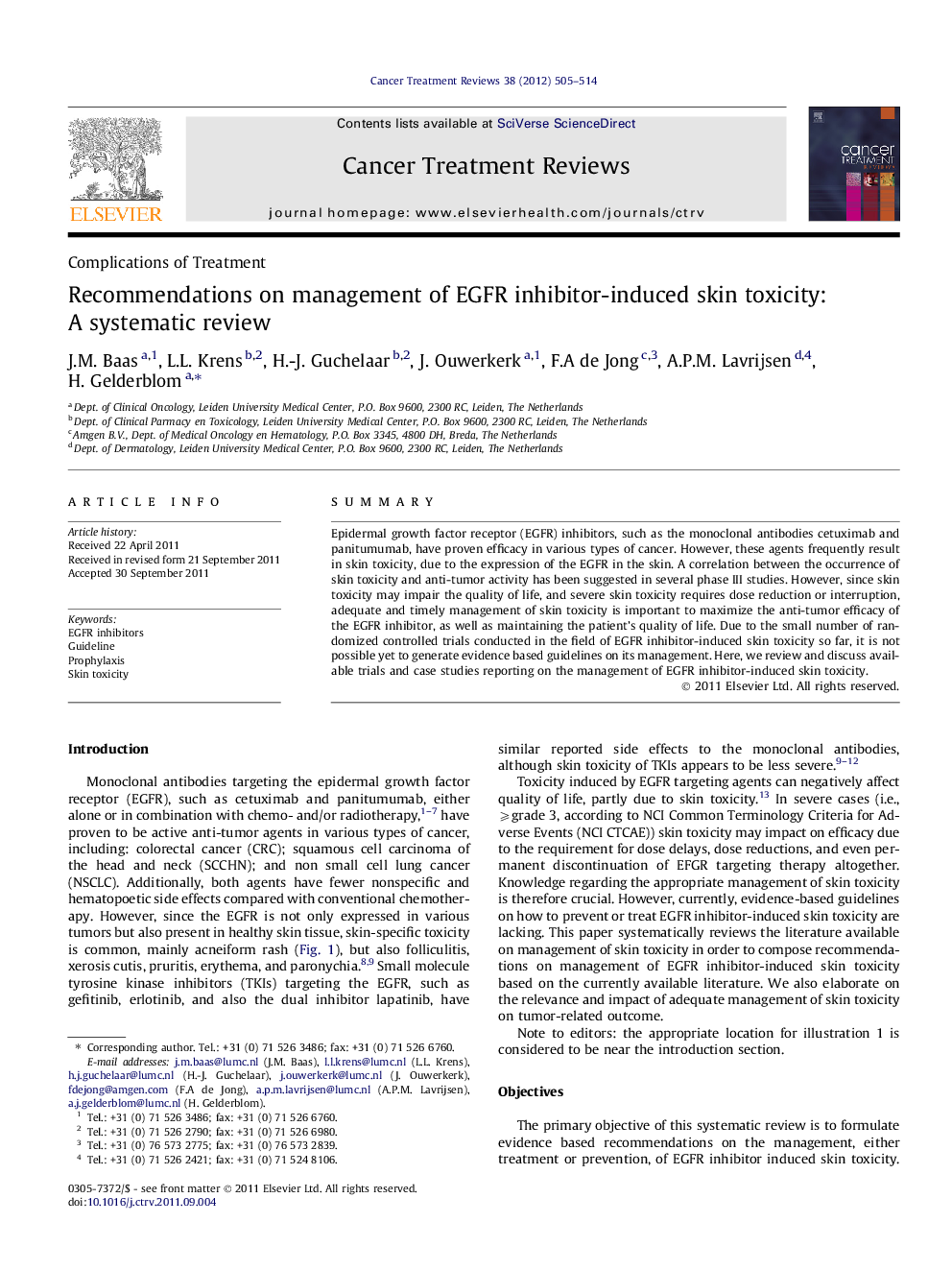| Article ID | Journal | Published Year | Pages | File Type |
|---|---|---|---|---|
| 3980000 | Cancer Treatment Reviews | 2012 | 10 Pages |
SummaryEpidermal growth factor receptor (EGFR) inhibitors, such as the monoclonal antibodies cetuximab and panitumumab, have proven efficacy in various types of cancer. However, these agents frequently result in skin toxicity, due to the expression of the EGFR in the skin. A correlation between the occurrence of skin toxicity and anti-tumor activity has been suggested in several phase III studies. However, since skin toxicity may impair the quality of life, and severe skin toxicity requires dose reduction or interruption, adequate and timely management of skin toxicity is important to maximize the anti-tumor efficacy of the EGFR inhibitor, as well as maintaining the patient’s quality of life. Due to the small number of randomized controlled trials conducted in the field of EGFR inhibitor-induced skin toxicity so far, it is not possible yet to generate evidence based guidelines on its management. Here, we review and discuss available trials and case studies reporting on the management of EGFR inhibitor-induced skin toxicity.
